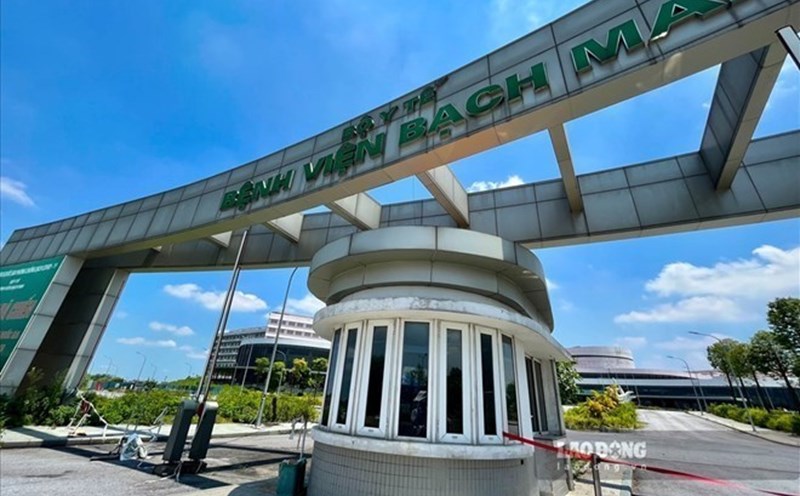Businesses not putting eggs in a basket
In the context of increasing international trade tensions, Vietnamese enterprises are facing an urgent need to find a new direction to ensure maintaining production and export market share. One of the strategic solutions is to diversify the market.
Mr. Dao Hong Quan - Production Director of an aluminum enterprise in Dong Van IV Industrial Park (Ninh Binh province) said that in recent years, the Vietnamese aluminum industry has continuously faced trade defense measures from many importing countries. In particular, from June 2025, the US will increase aluminum export tax from 23% to 50%, turning Vietnam's largest market into a " narrow door". Non- tariffs, environmental regulations, and the risk of being investigated for trade defense from the US, EU, Japan, and Australia are forcing Vietnamese aluminum businesses to diversify their markets, not to "put eggs in one basket".
We have also recently participated in fairs and exhibitions to learn about market trends and new partners. Small and medium-sized enterprises often have difficulty accessing market information, lack funding for trade promotion and are not capable of handling technical barriers. If there are support programs to participate in international fairs, market research, as well as timely information about trade defense lawsuits, businesses will be more confident in expanding market share" - Mr. Dao Hong Quan said.
In the context of a volatile export market, not only aluminum but also the Vietnamese vegetable and fruit industry is facing many difficulties. Speaking to Lao Dong Newspaper, Mr. Dang Phuc Nguyen - General Secretary of the Vietnam Fruit and Vegetable Association (Vinafruit) - said that businesses in the industry are aware of the risks of over-reliance on a market. Therefore, the strategy of " market diversification" is always put first.
According to Mr. Dang Phuc Nguyen, the Association has coordinated with management agencies such as the Ministry of Industry and Trade and the Ministry of Agriculture and Environment to implement many support programs. Activities of connecting international partners, introducing members to importers, organizing fairs and trade promotion groups in Europe, China, Japan... help businesses expand their consumption networks. At the same time, updated information on technical standards, consumer trends, and quarantine requirements are also disseminated to businesses, helping them proactively adapt.
To overcome the challenges from tariffs, the Vietnamese fruit and vegetable industry needs to focus on three key solutions. Invest in deep processing and preservation technology to meet the strict requirements of the long-haul market. Diversify the market with a focus on China, while improving competitiveness to maintain a position in the US, Europe, Japan and the Middle East. Strengthening value chain linkages from farmers, cooperatives to export enterprises, ensuring stable and synchronous supply in terms of quality - Mr. Dang Phuc Nguyen recommended.
Promote trade promotion, effectively utilize FTA
According to Central Party Committee member and Minister of Industry and Trade Nguyen Hong Dien, the current world economic context still has many potential risks, especially the tariff policies of the United States. Through the National Trade Promotion Program, the Ministry of Industry and Trade will coordinate with ministries, branches, localities, business associations, international partners to organize high-level conferences, exhibitions, international fairs; export promotion forums...
Nearly 1,000 trade promotion projects with a budget of more than 800 billion VND have been implemented by industry associations, central and local trade promotion agencies to diversify export markets, focus on export promotion to major markets, markets that have signed FTAs with Vietnam; new markets, potential markets...
Mr. Tran Ngoc Quan - Trade Counselor in Belgium and the EU said that EVFTA has brought a great advantage to Vietnam when more than 90% of tax rates have reached 0%. This is an opportunity for businesses to diversify their markets and increase their presence in Europe. However, there are risks from tightening food safety inspections, as well as extending self-defense measures for steel and alloy.
Ms. Nguyen Thi Hoang Thuy - Trade Counselor in Sweden - said that in the long term, when Europe returns to the sustainable development trajectory, only businesses that meet green standards and responsible manufacturing will maintain their position. This is a mandatory condition, no longer an option.
According to the Proponents, Vietnam needs a synchronous strategy to maintain its advantage and expand market share in the EU. Regarding policy, it is necessary to coordinate more closely with industry associations, tighten origin management to prevent evasion, and make the most of the EVFTA mechanism as well as other FTAs.









